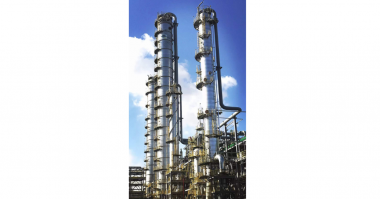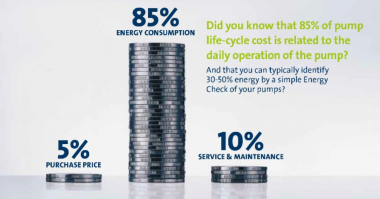In the multi-billion-dollar global pharmaceutical industry, increased emphasis is being placed on the manufacture of advanced biologically derived drugs. The challenge for manufacturers in this arena is twofold: produce drugs that satisfy all regulatory concerns, but do it in a manner that allows the manufacturer to make the most of the drug’s patent window, which helps determine the final overall market value of the drug.
The manufacture of biologically derived pharmaceuticals, or biologics, is a complex, precise, demanding, highly regulated business with many different types of systems and technologies deployed in order to create end-products that not only attain the highest level of purity, but also have the ability to provide tangible health benefits to the consuming public.
One of the technologies that is becoming increasingly popular for use in the manufacture of biologics is Radial Flow Chromatography (RFC). The RFC technique, which was actually invented in the 1950s, is an efficient, pressure-sensitive technology that it ideal for the bio-molecule fractionation and purification process within the “downstream” phase of biologic filtering and harvesting.
Unlike axial-flow systems where the biologic passes through the filtering media vertically, the RFC technique sees the media wrapped around a central cylinder, with the biologic passing through it horizontally from 360 degrees. RFC essentially folds the horizontal bed of the axial-flow system into a vertical cylinder and changes the flow direction from vertical to horizontal. While the filtering capabilities remain the same, the system’s footprint and weight are dramatically reduced.
Two critical steps in optimizing the performance of an RFC system are the packing of the filtering media, typically a resin, into the RFC’s central column and the pumping of the biologic through the RFC column. Because of the delicate nature of feedstocks used in biologic manufacture, not to mention their high value (a resin can cost as much as $10,000 an ounce), the pumps used in an RFC system must be very shear- and pressure-sensitive in their operation, even when pumping at various speeds.
While differing types of membrane and peristaltic (hose) pumps have been used for the transfer and handling of RFC resins and feedstocks, the best pump technology for the applications is a positive displacement one that features a quaternary (four-piston) diaphragm design, which enables a method of operation that is very similar to that of the human heart. In this technology, the pump’s diaphragms are driven one after another by a connector plate, which moves back and forth out of its central position in a stroke that is generated by an eccentric shaft, with the length of the stroke determined by the angle of the eccentricity.
The pump’s chambers contain no rotating parts that can be subject to friction, meaning that there is no operational heat buildup that can compromise the product. This mode of operation also means that the pumps can run dry, are self-priming and will produce little or no shear because of low slip. In addition, they offer low-pulsation, leak-free operation while having great dry/wet suction-lift capabilities. Typically, quaternary pumps can provide constant flows from 16 mL/min (0.54 oz/min) to 360 L/min (95 gpm) with some of the highest turn-up/down capabilities in the industry.
Since its founding in 2000, Quattroflow™ Fluid Systems GmbH & Co., Kamp-Lintfort, Germany, has addressed the need for reliable, shear- and pressure-sensitive pumps in biologic-manufacture applications and has designed its full lines of quaternary (four-piston) diaphragm pumps to meet the needs of RFC-derived biologic-manufacturing operations everywhere.
We are always interested in hearing about any equipment-related successes you have had in any of your operations. If there are any recent instances where a Quattroflow pump has helped optimize your capabilities in a biologic-manufacturing application, please send me an email at kevin.hogue@psgdover.com.




Comments